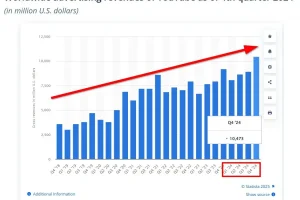In the post-2008 financial crisis world, regulatory capture has emerged as a hot topic. Regulatory capture are those cases whereby individuals and businesses attempt to leverage government agencies to set rules in the interests of firms or sectors that dominate the market.
Industry capture compromises regulators’ ability to serve the public interest, and destroys democratic principles of public-good governance. It can be anything from material incentives to subliminal cultural tyrants.
What is Regulatory Capture?
Regulatory capture happens when regulators get corrupted by the industries they are supposed to regulate and end up speaking for them instead of the public. And this could happen because they’re friends with those under regulation, because they’re in regular contact and correspondence with the companies that give them access to information they wouldn’t otherwise have, and because of the so-called revolving door.
Regulatory capture is a threat that needs to be confronted head on, but fortunately proxy advocates, tripartite consumer empowerment agendas and policy discussions around public interest considerations can all be ways of preventing regulatory capture. Such policies can limit regulatory capture’s detrimental consequences and ensure regulatory agencies operate according to public interest goals.
Where Is the Issue with Regulatory Capture?
Regulatory capture is a threat to the democratic vision of the state as “of and for the people”. It weakens public confidence in state institutions, threatens citizens’ health and safety and inhibits competition and creativity – and even worse, it is most painful when it comes to overseeing a profitable profit-seeking industry.
Ultimately, regulatory capture is an issue because private interests often prioritize their profits over those of the public. When regulatory agencies become advocates for businesses they regulate instead of protecting consumers, savings could be lost or health and safety could become at risk for consumers.
It is when the regulation agency regulates a very lucrative industry, where there is low transparency, inequitable access to information, and the regulator has unequal access to information that regulator capture most likely will result. Dismantling and combating regulatory capture are fundamental public policy problems that demand joint attention from legislators, government officials and scholars, as well the engagement of the public.
What Can Be Done to Prevent Regulatory Capture?
A number of approaches are possible to avoid regulatory capture. The first requires regulators to be screen for potential conflicts of interest and prohibited from using their role to exert industry control. The second, the public needs to be informed about regulatory capture and encouraged to endorse action against it; regulatory capture is not always inevitable, but tends to arise from distorted incentives in our own government system.
But avoiding regulatory capture boils down to making sure that regulation has public benefits that far outweigh its costs. It is achievable by executing detailed cost-benefit analyses of proposed regulation and ensuring clear processes with checks and balances. Furthermore, OCC can implement policies to avoid the risk of regulatory capture by eliminating incentive for big banks and incentivizing freedom for employees by creating more transparency, fostering thought diversity, and facilitating interdisciplinarity processes.
How Can Regulatory Capture Be Avoided?
Although some remedies for regulatory capture might include the ban on revolving door and cultural capital behaviour, others aim to mitigate its impact by ensuring regulated parties receive accurate, objective information. It is often suggested that we promote transparency and interdisciplinarity within regulatory agencies.
An alternative way of reducing capture is to restrict unnecessary regulation, like occupational licence requirements that benefit private capital over public. Whenever regulations are needed, policymakers will need to be alert to risk of regulatory capture, and ask themselves if they’re worth it in the first place.
Capture needs to be identified and quantified first, and the definition of capture should be defined clearly. Authorities need to reveal potential conflicts of interest or other vested interests from the industries they monitor; and agents who are guilty of capture should be held responsible by both their targeted industries and those they represent.








